2.5 TDi R5 Problems & Issues
"Common Faults & Problems To Look out for on The 2.5 TDI Engine"
The VAG 2.5 TDI engine, like any other engine, is susceptible to problems and weaknesses. Here are some of the most common issues that owners of these engines have reported:
Generally speaking though these engines are reliable and few owners experience these issues, but they do crop up and it is handy knowing the symptoms and problems and jump on these issues early on.
Generally speaking the newer engines and CR engines are more reliable than early ones as the VAG engineers sought to fix many of these issues that cropped up.
Injector Problems
The VAG 2.5 TDI engine is identified to have injector problems, which can cause a variety of issues such as rough idling, misfiring, and reduced power output.
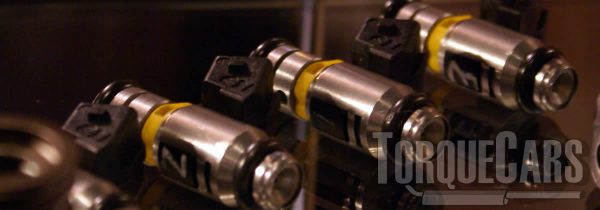
Some owners have reported that faulty injectors can also cause engine damage if left unchecked.
Turbocharger Failure
Another common issue reported by owners of the VAG 2.5 TDI engine is turbocharger failure.
Reduced power output, excessive smoke from the exhaust, and a whining noise from the turbocharger are all signs of a failing turbocharger.
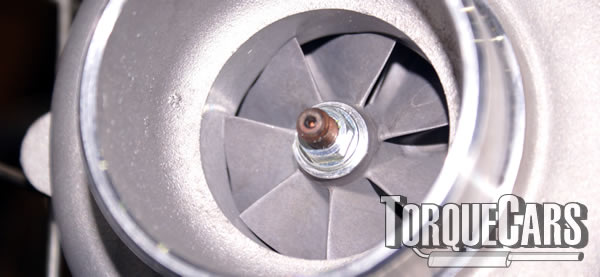
Sometimes an aggressive tune/remap can overboost the turbo at low RPMS causing it to run too hot and ruining the lubrication causing excessive wear. Make sure your map is set to put the power on from around 2000rpm, or similar to the factory output at these lower RPM ranges.
Intake Manifold Problems
The VAG 2.5 TDI engine's intake manifold is susceptible to crack formation, which can result in power loss and elevated fuel consumption.
Some owners have confirmed that a cracked intake manifold can even cause engine damage and further problems.
EGR Valve Issues
The VAG 2.5 TDI engine's exhaust gas recirculation (EGR) valve can become clogged with carbon deposits, resulting in a variety of issues such as reduced power output and rough idling.
EGR stands for exhaust gas recirculation. It is a system that reduces the nitrogen oxides (NOx) emissions from internal combustion engines by recirculating a portion of the exhaust gas back to the engine cylinders.
This takes up the space for oxygen and warms the cylinder (lowering the combustion temperature) allowing for a faster warm up and better efficiency at low rpm speeds reducing the formation of NOx.
EGR valves are devices that control the amount and timing of the exhaust gas recirculation. They can be either mechanical or electronic, depending on the type of engine and vehicle.
EGR systems are important for improving air quality and meeting emission standards.
However, they can also cause some problems such as carbon build up, reduced performance and increased fuel consumption if they are not working properly or maintained regularly.
Note that Carbon build up on the valves will still occur without an EGR due to the way the PCV (crankcase ventilation works).
Carbon Build Up
Most direct injection diesel engines will suffer from carbon build up on the intake valves and the head. Primary sources of these deposits are the PCV and the EGR.
The oil from the crankcase in vapour form is allowed to enter the intake where is contaminates the valves and becomes a hard sticky residue. The additional soot from the exhaust entering the intake via the EGR further builds up.
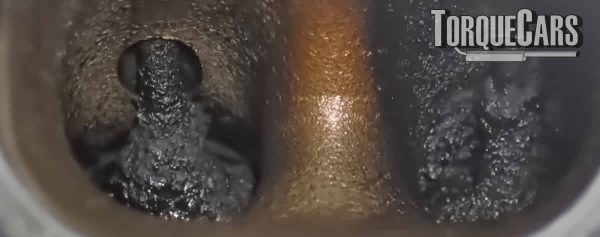
Some owners recommend an EGR delete (if legal in your area), and the fitting of an oil catch can to drain away excess oil.
Some possible ways to prevent or reduce carbon build up are:
- Using good quality fuel (keeps injectors clean and burns with less soot)
- Using the VW spec of oil is vital
- Changing the oil and filter regularly
- Driving at higher RPMs occasionally to ensure the engine is not in the sooty inefficient cycle every time you use it.
- Using a fuel additive or injector cleaner to ensure less soot is produced
- Cleaning the intake manifold, EGR valve, turbocharger and injectors periodically
A walnut clean or chemical process professionally undertaken will get those valves looking like new, and this should be something viewed as a service item every 30,000 miles or so depending on your driving style.
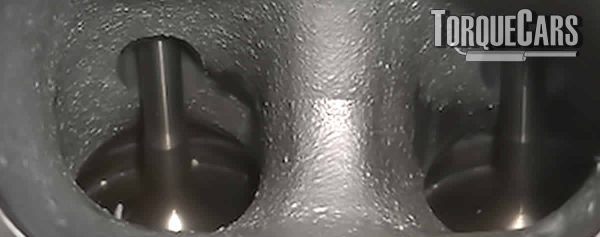
Timing Belt Failure
To avoid catastrophic engine damage, the timing belt on the VAG 2.5 TDI engine should be replaced at regular intervals.
Rough idling, misfiring, and reduced power output are all signs of a failing timing belt.
The later revision of the 2.5 TDi as per the T5 Transporter used a gear system instead of a conventional timing/belt chain, so at least this is one less problem to be on the look out for.
Oil Pump Failure
Some owners have reported oil pump failure on the VAG 2.5 TDI engine, which can cause engine damage if left unattended. Low oil pressure and excessive engine noise are signs of oil pump failure.
Boost Leak Issues
Boost leaks are another common problem with the VAG 2.5 TDI engine. Boost leaks happen when air escapes from the turbocharger system before reaching the engine, resulting in a loss of power and performance.
The following are some of the most common causes of boost leaks on the VAG 2.5 TDI engine:
Loose or Damaged Hoses
The hoses that connect the turbocharger system to the engine can become damaged or loose, allowing air to escape.
Common areas of damage include the hose clamps, which can become corroded or loose over time.
Intercooler Problems
The intercooler on the VAG 2.5 TDI engine can become clogged with debris or can get damaged, resulting in reduced airflow and power. Air can also leak from the system if the intercooler is damaged.
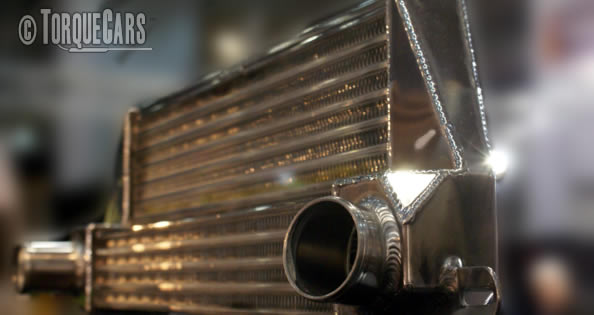
Loose or Damaged Intake Manifold
As mentioned earlier, the intake manifold on the VAG 2.5 TDI engine can become cracked or damaged, causing air to leak from the system.
Failed Diverter Valve
The VAG 2.5 TDI engine's diverter valve is in responsible of redirecting excess boost pressure back into the intake system. Excess pressure can escape from the system if the diverter valve fails, resulting in a loss of power.
It's critical to address any boost leak issues as soon as possible to avoid further engine damage.
A qualified mechanic can identify the source of the leak and recommend repairs. Regular turbocharger system maintenance and inspection can also help prevent boost leaks from occurring in the first place.
DPF Issues
To reduce emissions, the VAG 2.5 TDI engine contains a diesel particulate filter (DPF). However, the DPF can become clogged with soot and other particulate matter over time, causing a variety of problems.
Most DPF problems are caused by owners using low rpms all the time and performing many short journeys where the DPF doesn't get hot enough to function.
Here are some of the most common DPF issues that can affect the VAG 2.5 TDI engine:
Reduced Power Output
A clogged DPF can reduce power output and make the engine feel sluggish and unresponsive. In some cases, the engine may even enter "limp mode," which severely limits power.
Increased Fuel Consumption
When the DPF becomes clogged, the engine has to work harder to produce the same amount of power, which reduces fuel efficiency.
DPF Warning Light
A clogged DPF can cause the DPF warning light on the dashboard to illuminate, indicating a problem with the filter.
Regeneration Issues
The DPF is designed to regenerate itself on a regular basis in order to burn off accumulated soot. However, if the engine is not driven properly or if the regeneration system fails, the DPF may not regenerate properly, resulting in a clogged filter.
Blocked DPF
In severe cases, the DPF can become so clogged that it causes an exhaust system blockage, resulting in increased back pressure and decreased power output.
Final Verdict
It's important to note that regular maintenance and proper care can help keep these problems at bay.
If you notice any of the above symptoms, you should have your engine checked by a qualified mechanic to avoid further damage. Problems like this have a habit of escalating, and the damage can spread to other components greatly raising the costs of repair.
Please Check out my YouTube channel, we're regularly adding new content...
PLEASE HELP: I NEED YOUR DONATIONS TO COVER THE COSTS OF RUNNING THIS SITE AND KEEP IT RUNNING. I do not charge you to access this website and it saves most TorqueCars readers $100's each year - but we are NON PROFIT and not even covering our costs. To keep us running PLEASE Donate here
If you liked this page please share it with your friends, drop a link to it in your favourite forum or use the bookmarking options to save it to your social media profile.
Feedback - What do You Think?
Please use our forums if you wish to ask a tuning question, and please note we do not sell parts or services, we are just an online magazine.
Help us improve, leave a suggestion or tip
Please watch this video and subscribe to my YouTube channel.

 Click to accept YouTube Cookies & Play.
Click to accept YouTube Cookies & Play.